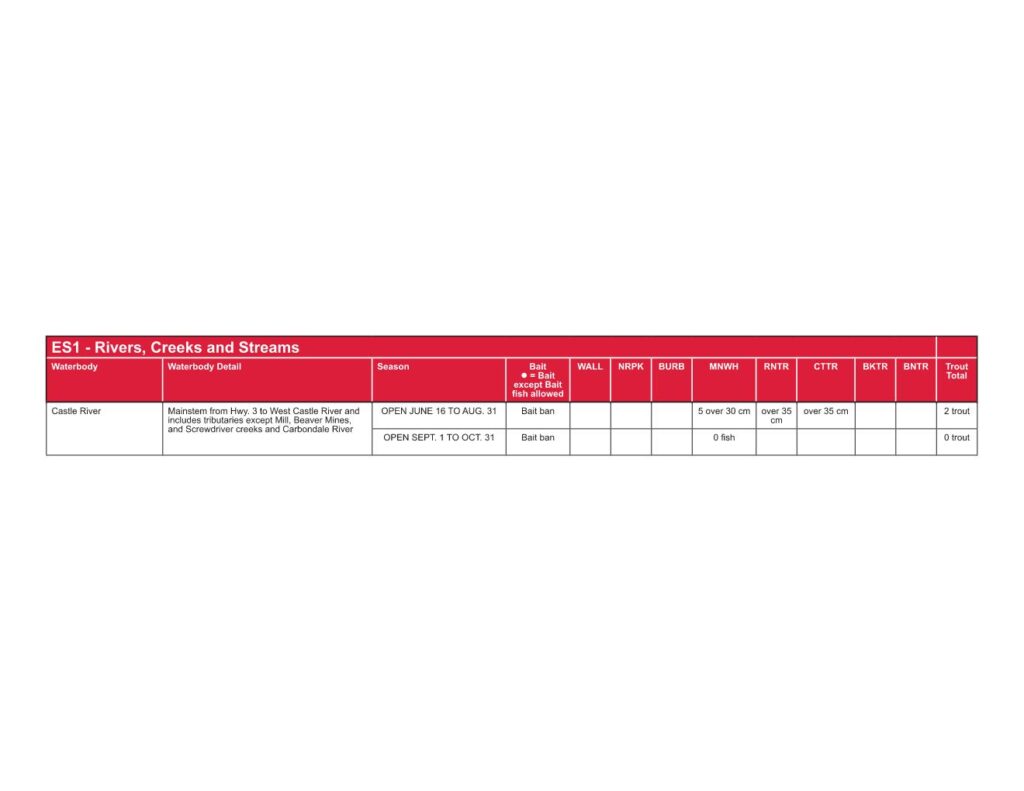Current Castle River Conditions

About The Castle River
The Castle River is a picturesque mountain stream that flows through the rugged landscape of southwestern Alberta. Nestled within the Castle Provincial Park and Castle Wildland Provincial Park, this river is known for its clear, cold waters, rich biodiversity, and excellent fishing opportunities.The Castle River begins in the Rocky Mountains near the Continental Divide and is fed by snowmelt and pristine mountain springs. It flows through a variety of terrain, including alpine meadows, forested valleys, and foothills, before emptying into the Oldman Reservoir near the town of Lundbreck.
Why Fish the Castle River?
The Castle River is a haven for trout enthusiasts, with a variety of species thriving in its waters like Bull Trout (Catch and Release only), Cutthroat Trout, Rainbow Trout, Cutt-Bows, and Mountain Whitefish.
Key Features of the Castle River:
Anglers are drawn to the Castle River for its balance of challenge and reward. The fish are healthy and active, but they can also be wary, requiring careful presentation and fly selection. The river is surrounded by breathtaking Rocky Mountain vistas, making it a serene and inspiring location for anglers and outdoor enthusiasts alike.
Outdoor Activities:
In addition to fishing, the Castle River is a hotspot for kayaking, rafting, and hiking and mountain biking. There is also multiple camping options along its banks from the Castle Provincial Park in the upper reached to the Castle Valley Campground near Highway 3.
Access:
Easy access is provided from Highway 774 and the Forrestry Trunk Road. The River is also crossed by Highway 507 and Highway 3. Hiking along the river’s less accessible sections can lead to prime fishing spots with minimal angling pressure.
Fishing Tips for the Castle River:
During the warmer summer months, expect the usual hatches of Stoneflies, Mayflies, and Caddisflies. Early mornings and evenings often bring active Pale Morning Duns (PMDs) and Pale Evening Duns (PEDs). Terrestrials, such as hoppers and beetles, can be a reliable choice throughout much of the season. Consider using lighter tippets toward the end of summer as the trout grow more wary.
Regulations:
Be aware of Alberta’s fishing regulations, including special rules for Bull Trout, which are catch-and-release only.
Click here for regulations
Plan Your Adventure:
Spring Runoff can make fishing challenging, but the river becomes more accessible as flows stabilize. The area tends to be very popular in the summer as well so be prepared for some activity when in the area. This area can absolutely stunning in the fall as well.